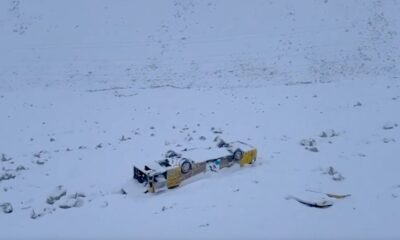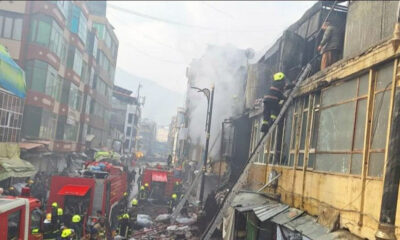Regional
Who are Yemen’s Houthis and why are they attacking Red Sea ships?
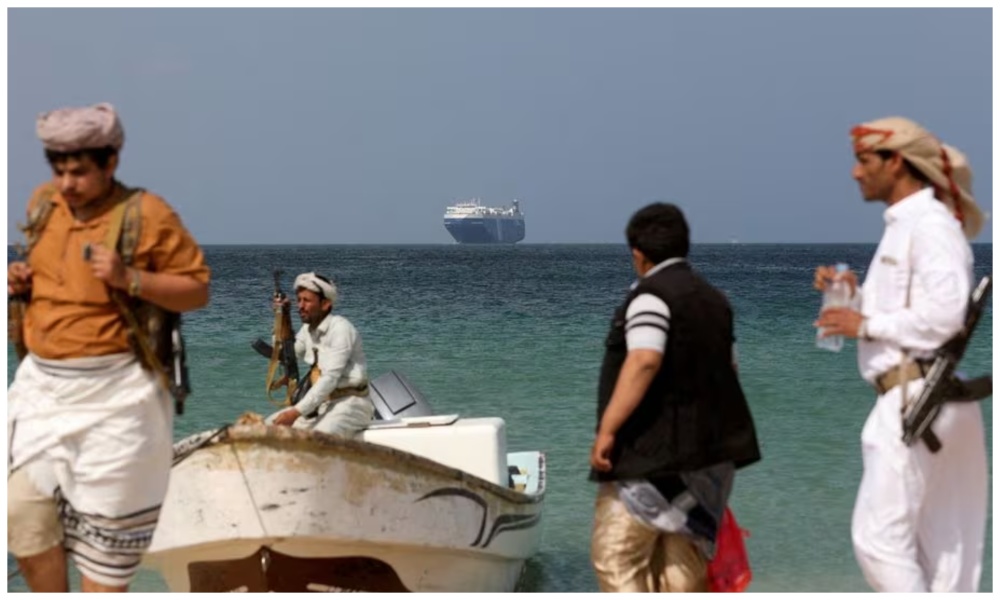
The Iran-aligned Houthis of Yemen are playing an escalating role in the Middle East, attacking shipping in the Red Sea and firing drones and missiles at Israel in a campaign they say aims to support Palestinians in the Gaza war, Reuters reported.
U.S. Defense Secretary Lloyd Austin on Tuesday announced the creation of a multinational operation to safeguard commerce in the Red Sea in response to the Houthi attacks.
The Houthis’ role has added to the conflict’s regional risks, threatening sea lanes through which much of the world’s oil is shipped, and worrying states on the Red Sea as Houthi rockets and drones fly towards Israel.
Who are the Houthis?
History
In the late 1990s, the Houthi family in far north Yemen set up a religious revival movement for the Zaydi sect of Shi’ite Islam, which had once ruled Yemen but whose northern heartland had became impoverished and marginalised, Reuters reported.
As friction with the government grew, they fought a series of guerrilla wars with the national army and a brief border conflict with Sunni powerhouse Saudi Arabia.
Growing Power
Their power grew during the Yemen war which began in late 2014, when they seized Sanaa. Worried by the growing influence of Shi’ite Iran along its border, Saudi Arabia intervened at the head of a Western-backed coalition in 2015 in support of the Yemeni government, Reuters reported.
The Houthis established control over much of the north and other big population centres, while the internationally recognised government based itself in Aden.
Yemen has enjoyed more than a year of relative calm amid a U.N.-led peace push. Saudi Arabia has been holding talks with the Houthis in a bid to exit the war.
Role in Middle East war
The Houthis waded into the latest conflict as it spread around the Middle East, announcing on Oct. 31 they had fired drones and missiles at Israel and vowing they would continue to mount attacks “until the Israeli aggression stops”.
Their actions have echoed the role of the Iran-backed Lebanese group Hezbollah, which has been attacking Israeli positions at the Lebanese frontier, and Iraqi militias which have been firing at U.S. interests in Iraq and Syria.
Stepping up their threats, the Houthis said on Dec. 9 they would target all ships heading to Israel, regardless of nationality, and warned all international shipping companies against dealing with Israeli ports, Reuters reported.
“If Gaza does not receive the food and medicine it needs, all ships in the Red Sea bound for Israeli ports, regardless of their nationality, will become a target for our armed forces,” the Houthi spokesperson said in a Dec. 9 statement.
The Houthis’ slogan is “Death to America, Death to Israel, curse the Jews and victory to Islam”.
Iran links
The United States believes that Iran’s Islamic Revolutionary Guard Corps is helping to plan and carry out the Houthi missile and drone attacks, Reuters reported.
“Iran’s support for Houthi attacks on commercial vessels must stop,” U.S. Defense Secretary Lloyd Austin said on Dec. 18.
Iran denies involvement.
The Saudi-led coalition has long accused Iran of arming, training and funding the Houthis. The Houthis deny being an Iranian proxy and say they develop their own weapons.
Arsenal
The Houthis demonstrated their missile and drone capabilities during the Yemen war in attacks on Saudi Arabia and the United Arab Emirates, targeting oil installations and vital infrastructure.
The arsenal includes ballistic missiles and armed drones capable of hitting Israel more than 1,000 miles from their seat of power in Sanaa.
Its Tofan, Borkan, and Quds missiles are modeled on Iranian weapons and can hit targets up to 2,000 km away, experts say.
The Houthis fired these missiles at Saudi Arabia dozens of times during the Yemen war. In September, the Houthis displayed anti-aircraft Barq-2 missiles, naval missiles, a Mig-29 fighter jet and helicopters for the first time.
The Houthis have also used fast boats armed with machine guns in their operations against shipping.
Regional
Pakistan court hands Imran Khan, wife 17-year jail terms in another graft case
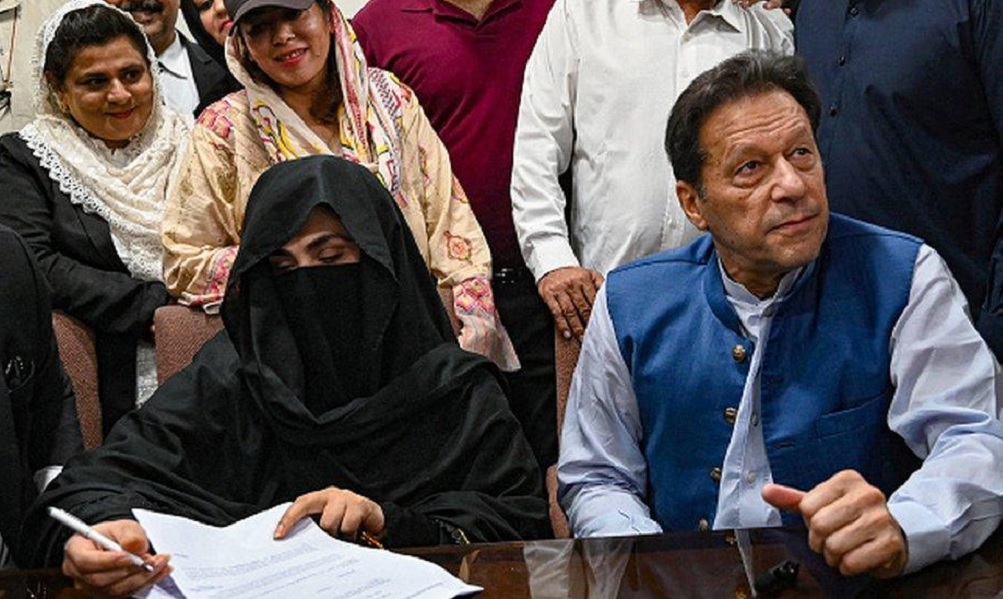
A Pakistani court on Saturday sentenced former Prime Minister Imran Khan and his wife Bushra Bibi to 17 years in prison each in a corruption case involving the under-priced purchase of luxury state gifts, the court and Khan’s lawyers said.
The latest conviction adds to a series of legal troubles for Khan, who has been behind bars since August 2023, and is currently serving a 14-year sentence in a separate land graft case, Reuters reported.
He faces dozens of cases filed since he was ousted from office in 2022, ranging from corruption to anti-terrorism and state secrets charges. Khan has denied wrongdoing in all the cases, which his party says are politically motivated.
“The court announced the sentence without hearing the defence and sentenced 17 years imprisonment to Imran Khan and Bushra Bibi with heavy fines,” Khan’s family lawyer Rana Mudassar Umer told Reuters.
They were handed 10 years’ rigorous imprisonment under Pakistan’s penal code for criminal breach of trust and a further seven years under anti-corruption laws, the special court of Pakistan’s Federal Investigation Agency said in its verdict.
He faces dozens of cases filed since he was ousted from office in 2022, ranging from corruption to anti-terrorism and state secrets charges. Khan has denied wrongdoing in all the cases, which his party says are politically motivated.
“The court announced the sentence without hearing the defence and sentenced 17 years imprisonment to Imran Khan and Bushra Bibi with heavy fines,” Khan’s family lawyer Rana Mudassar Umer told Reuters.
They were handed 10 years’ rigorous imprisonment under Pakistan’s penal code for criminal breach of trust and a further seven years under anti-corruption laws, the special court of Pakistan’s Federal Investigation Agency said in its verdict.
Khan’s jail term from Saturday’s ruling would begin after he has served the 14 years from the land graft case, Information Minister Attaullah Tarar said.
The case relates to luxury watches gifted to Khan by Saudi Arabia’s Crown Prince Mohammed bin Salman during official visits, which prosecutors said Khan and his wife then purchased from the state at a heavily discounted price in violation of Pakistan’s gift rules.
Tarrar said the purchase resulted in losses of several million rupees for the state.
Zulfi Bukhari, a spokesperson for Khan, said the verdict “ignores basic principles of justice” and turns the process into “a tool for selective prosecution.”
Khan has told his legal team to appeal the decision at the Islamabad High Court, Salman Safdar, another one of his lawyers, told reporters outside the jail where the trials were being held, Geo News reported.
ANOTHER STATE GIFTS CONVICTION
The case is separate from an earlier state gifts prosecution linked to Khan’s August 2023 arrest. Earlier sentences of 14 years for Khan and seven years for Bushra Bibi were later suspended on appeal. The couple denies wrongdoing.
The cases are commonly known in Pakistan as the Toshakhana cases, referring to the state repository where gifts received by public officials are deposited.
Following the verdict, Khan’s Pakistan Tehreek-e-Insaf (PTI) party announced plans for protests across Punjab on Sunday.
Khan’s party also says routine family and legal visits have been blocked in recent weeks despite court orders. Authorities deny any mistreatment and say he is receiving all facilities available to prisoners.
Khan, a former cricket star turned politician, remains one of Pakistan’s most polarising figures, with his legal battles unfolding as his Pakistan Tehreek-e-Insaf party remains sidelined from power.
Regional
Pakistan’s military chief Asim Munir in spotlight over Trump’s Gaza plan
Munir was earlier this month anointed chief of the defence forces to head the air force and navy as well, with a job extension until 2030.
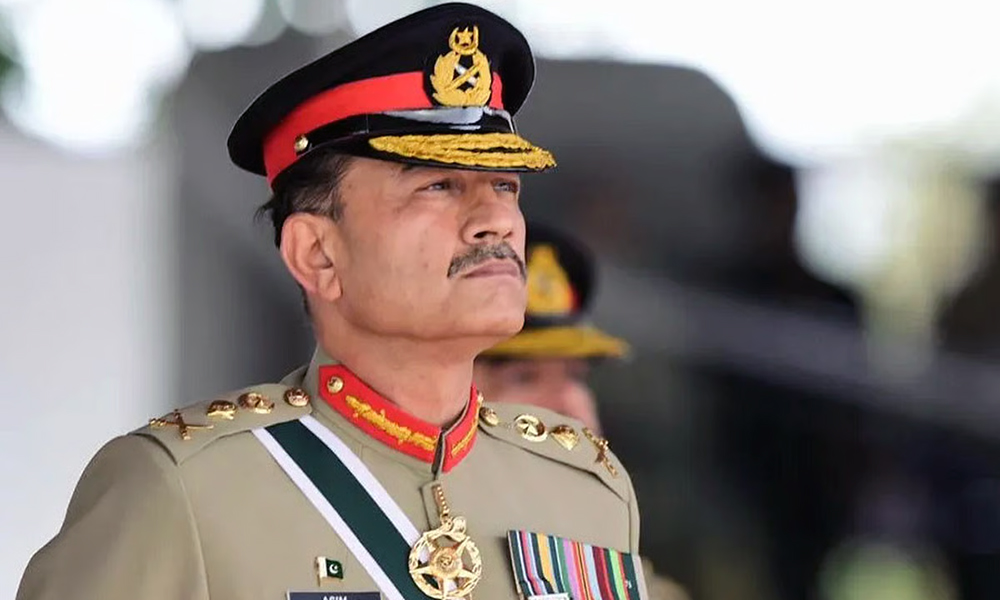
Pakistan’s most powerful military chief in decades faces the toughest test of his newly amassed powers as Washington pushes Islamabad to contribute troops to the Gaza stabilisation force, a move analysts say could spark domestic backlash.
Field Marshal Asim Munir is expected to fly to Washington to meet President Donald Trump in the coming weeks for a third meeting in six months that will likely focus on the Gaza force, two sources told Reuters, one of them a key player in the general’s economic diplomacy.
Trump’s 20-point Gaza plan calls for a force from Muslim nations to oversee a transition period for reconstruction and economic recovery in the war-torn Palestinian territory, decimated by over two years of Israeli military bombardment.
Many countries are wary of the mission to demilitarise Gaza’s Islamist militant group Hamas, which could drag them into the conflict and enrage their pro-Palestinian and anti-Israeli populations.
But Munir has built a close relationship with the mercurial Trump to repair years of mistrust between Washington and Islamabad. In June, he was rewarded with a White House lunch – the first time a U.S. president hosted Pakistan’s army chief alone, without civilian officials.
“Not contributing (to the Gaza stabilisation force) could annoy Trump, which is no small matter for a Pakistani state that appears quite keen to remain in his good graces – in great part to secure U.S. investment and security aid,” said Michael Kugelman, Senior Fellow, South Asia at Washington-based Atlantic Council.
Pakistan, the world’s only Muslim country with nuclear weapons, has a battle-hardened military having gone to war with arch-rival India three times and a brief conflict this summer.
It has also tackled insurgencies in its far-flung regions and is currently embroiled in a bruising war with Islamist militants who it says are operating from Afghanistan.
Pakistan’s military strength means “there is a greater pressure on Munir to deliver his capacity,” said author and defence analyst Ayesha Siddiqa.
Pakistan’s military, foreign office and information ministry did not respond to questions from Reuters. The White House also did not respond to a request for a comment.
Pakistani Foreign Minister Ishaq Dar said last month that Islamabad could consider contributing troops for peacekeeping but disarming Hamas “is not our job.”
Munir was earlier this month anointed chief of the defence forces to head the air force and navy as well, with a job extension until 2030.
He will retain his field marshal title forever, as well as enjoy lifetime immunity from any criminal prosecution under the constitutional amendments that Pakistan’s civilian government pushed through parliament late last month.
“Few people in Pakistan enjoy the luxury of being able to take risks more than Munir. He has unbridled power, now constitutionally protected,” Kugelman added.
“Ultimately, it will be Munir’s rules, and his rules only.”
Over the past few weeks, Munir has met military and civilian leaders from countries such as Indonesia, Malaysia, Saudi Arabia, Turkey, Jordan, Egypt and Qatar, according to the military’s statements, which Siddiqa said appeared to be consultations on the Gaza force.
But the big concern at home is that the involvement of Pakistan troops in Gaza under a U.S.-backed plan could re-ignite protests from Pakistan’s Islamist parties that are deeply opposed to the U.S. and Israel.
The Islamists have street power to mobilise thousands.
A powerful and violent anti-Israel Islamist party that fights for upholding Pakistan’s ultra-strict blasphemy laws was banned in October.
Authorities arrested its leaders and over 1,500 supporters and seized its assets and bank accounts in an ongoing crackdown, officials said.
While Islamabad has outlawed the group, its ideology is still alive.
The party of former jailed premier, Imran Khan, whose supporters won the most seats in the 2024 national elections and has wide public support, also has an axe to grind against Munir.
Abdul Basit, Senior Associate Fellow, S. Rajaratnam School of International Studies in Singapore, said if things escalated once the Gaza force was on the ground, it would cause problems quickly.
“People will say ‘Asim Munir is doing Israel’s bidding’ – it will be foolhardy of anyone not to see it coming.”
Regional
Two US soldiers and an interpreter killed in suspected Daesh attack in Syria
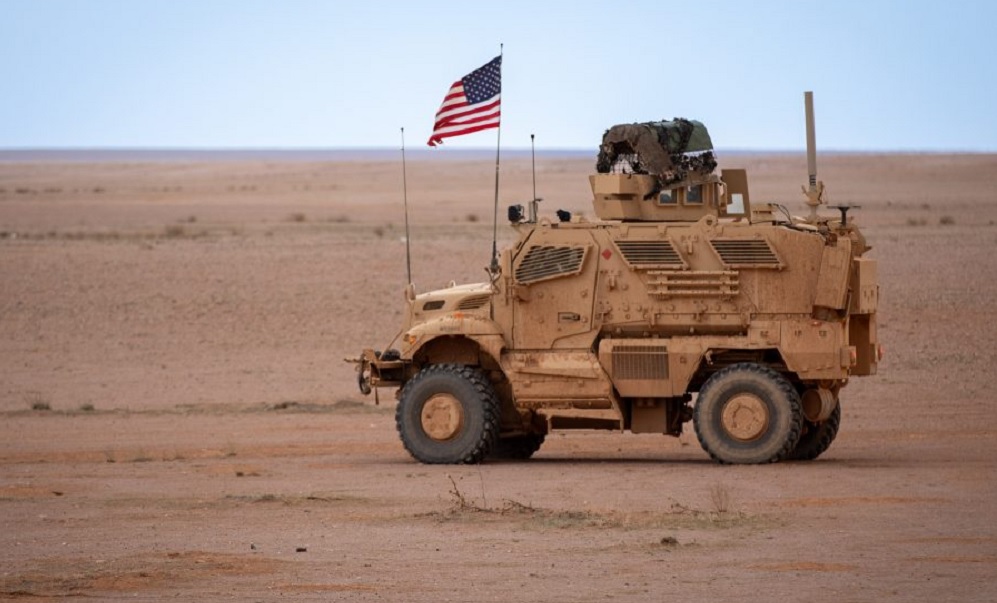
Two U.S. Army soldiers and a civilian interpreter were killed in Syria on Saturday by a suspected Daesh attacker who targeted a convoy of American and Syrian forces before being shot dead, the U.S. military said.
The attack was barely a month after Syria announced it had signed a political cooperation agreement with the U.S.-led coalition against Daesh, which coincided with Syrian President Ahmed al-Sharaa’s visit to the White House, Reuters reported.
The attacker was a member of the Syrian security forces, three local officials told Reuters. A Syrian Interior Ministry spokesperson told a state-run television channel that the man did not have a leadership role in the security forces.
“On December 10, an evaluation was issued indicating that this attacker might hold extremist ideas, and a decision regarding him was due to be issued tomorrow, on Sunday,” the spokesperson, Noureddine el-Baba, told Syrian television channel Al-Ikhbariya.
In a post on his Truth Social platform, U.S. President Donald Trump vowed “very serious retaliation,” mourning the loss of “three great patriots”. He described the incident in remarks to reporters as a “terrible” attack.
CENTRAL COMMAND SAYS THE ATTACKER WAS KILLED
Three U.S. soldiers were also wounded in the attack, the U.S. military’s Central Command said.
In a statement, Central Command said the attack by a lone gunman occurred “as the soldiers were conducting a key leader engagement” in the central Syrian town of Palmyra. “Partner forces” killed the attacker, U.S. Secretary of Defense Pete Hegseth wrote in a social media post.
A senior U.S. official said initial assessments indicated that Daesh probably carried out the attack, although the militant group did not immediately claim responsibility.
It took place in an area not controlled by the Syrian government, the official said.
Baba said Syria had warned about the possibility of an Daesh attack in that region but that “coalition forces did not take the Syrian warnings… into account.”
He said Syria would determine whether the attacker was linked to Daesh or merely subscribed to the group’s ideology.
The soldiers’ names will be withheld until 24 hours after the next-of-kin notification, the U.S. military said.
US ENVOY CONDEMNS THE ATTACK
Syrian state news agency SANA quoted a security source as saying two Syrian service personnel were injured, without providing further details. The source told SANA that American helicopters evacuated the injured to a U.S. base in Syria’s Al-Tanf region near the Iraqi border.
Tom Barrack, the U.S. ambassador to Turkey and special envoy to Syria, condemned the attack.
“We mourn the loss of three brave U.S. service members and civilian personnel and wish a speedy recovery to the Syrian troops wounded in the attack,” Barrack said in a statement. “We remain committed to defeating terrorism with our Syrian partners.”
The U.S.-led coalition has carried out air strikes and ground operations in Syria targeting Islamic State suspects in recent months, often with the involvement of Syria’s security forces. Syria last month also carried out a nationwide campaign arresting more than 70 people accused of links to the group.
The United States has troops stationed in northeastern Syria as part of a decade-long effort to help a Kurdish-led force there.
-
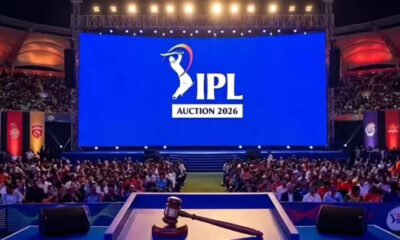
 International Sports5 days ago
International Sports5 days agoIPL 2026: Teams take shape after auction as franchises balance star power and depth
-

 International Sports4 days ago
International Sports4 days agoILT20: Abu Dhabi Knight Riders end Desert Vipers’ unbeaten run in dramatic one-run win
-

 Latest News2 days ago
Latest News2 days agoAfghan border forces prevent illegal entry of hundreds into Iran
-
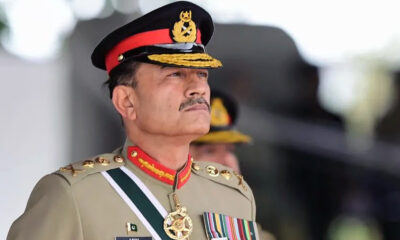
 Regional5 days ago
Regional5 days agoPakistan’s military chief Asim Munir in spotlight over Trump’s Gaza plan
-

 Latest News2 days ago
Latest News2 days agoPakistan summons Afghan diplomat over deadly attack in North Waziristan
-

 Business4 days ago
Business4 days agoMahirood Customs leads Iran’s exports to Afghanistan
-

 World5 days ago
World5 days agoTrump adds seven countries, including Syria, to full travel ban list
-
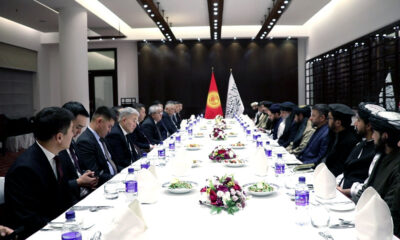
 Latest News4 days ago
Latest News4 days agoAfghanistan, Kyrgyzstan discuss expanding trade and economic cooperation








